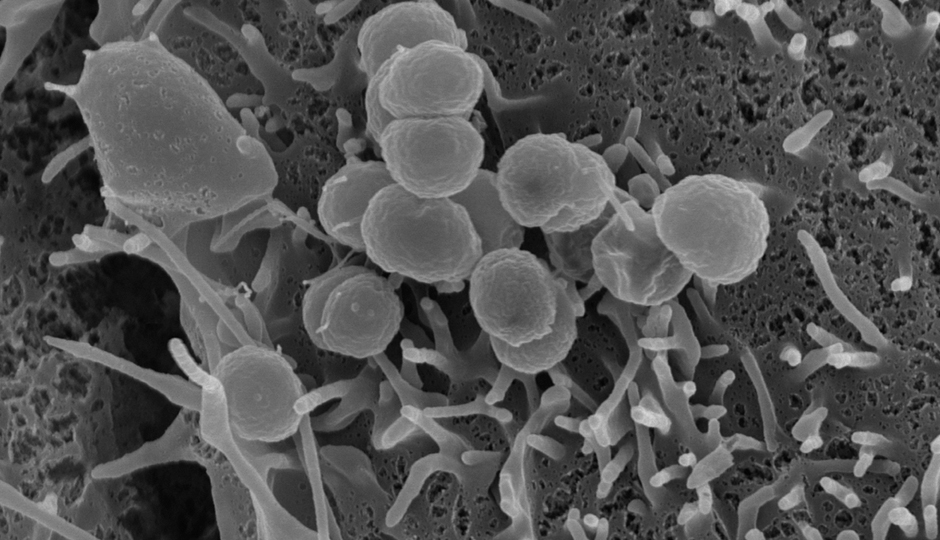
From a public health perspective, gonorrhoea and meningococcal meningitis are tremendous challenges. Together, the infections affect millions of people every year in developing and developed nations. Thankfully, the bacteria that cause them, like Neisseria gonorrhoeae and Neisseria meningitidis, can be eradicated with antibiotics, though some strains of Neisseria have become antibiotic resistant, thus complicating the fight. However, Frédéric Veyrier, professor at the Institut national de la recherche scientifique, and his collaborators recently identified a molecule that can defeat the resistant strains.
Gonorrhoea and meningococcal meningitis affect millions of people every year.
Indeed, chemists have been familiar with sodium tetraphenylborate for quite some time, and the pharmaceutical industry relies on it to synthesize a number of organo-metallic compounds. Though simple, accessible and inexpensive, NaBPh4 had never been studied in bacterial cultures or in vivo infection models. Professor Veyrier, who has focused his career on bacteriology in living animal models, found that the molecule is a powerful weapon against Neisseria at the source of gonorrhoea and meningococcal meningitis but does not affect the other types of Neisseria that provide health benefits. Better still, when the pathogenic bacteria become resistant to the molecule, they also lose their virulence and become neutralized.
Now that they have made this unexpected discovery, the researchers are working hard to explain the clear specificity of NaBPh4. Their recent results, which have yet to be published, indicate that the key may be the membrane of the pathogenic Neisseria. Working in collaboration, Frédéric Veyrier and a group of chemists led by Annie Castonguay modified the molecule to make it more lipophilic and, at the same time, make it 1 000 to 10 000 times more effective against the bacteria. Funded by the Réseau québécois de recherche sur les medicaments, the research could open doors to new therapies, including the use of vaginal suppositories against gonorrhea, and advance basic knowledge of Neisseria.
